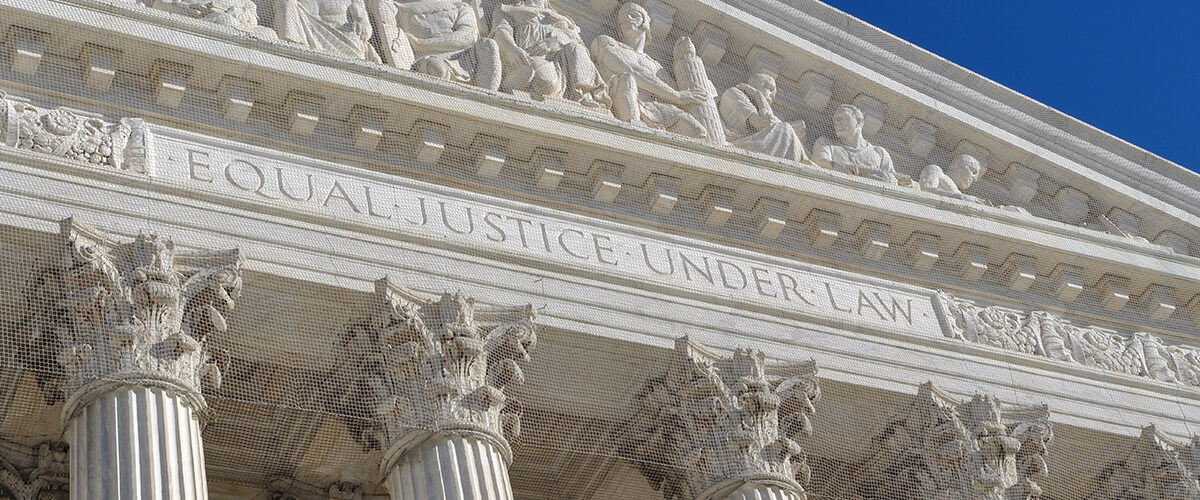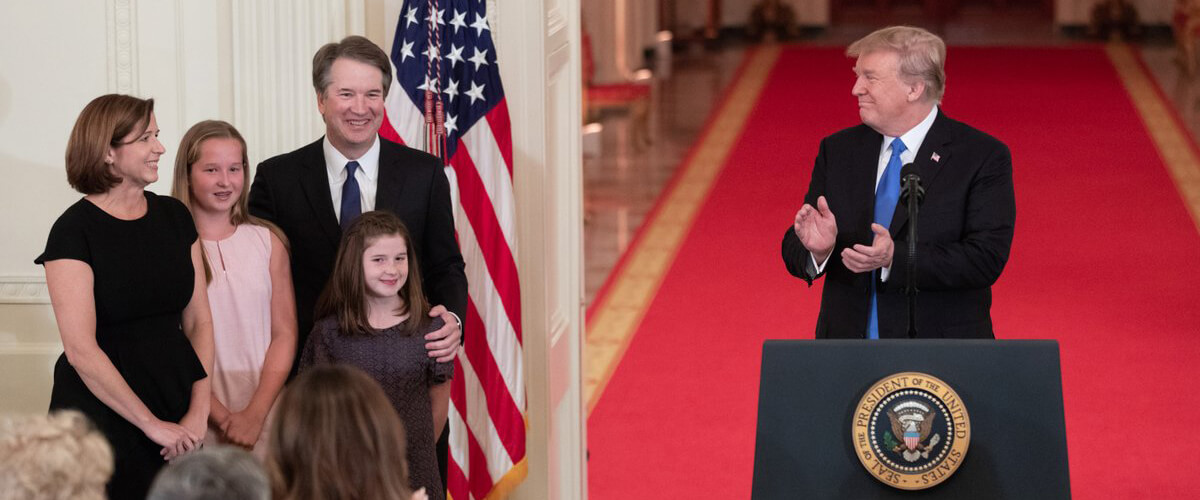Donald Trump’s second Supreme Court nominee could help shape the nation’s policies regarding cannabis for years to come.
Donald Trump announced yesterday that Washington, D.C. Circuit Court Judge Brett M. Kavanaugh is his pick to replace Justice Anthony M. Kennedy’s retirement on the United States Supreme Court. While Kavanaugh’s path to confirmation is expected to be challenged heavily by Democrats, if confirmed his place on the nation’s highest-ranking judicial body could heavily influence rulings regarding marijuana policy and reform for decades.
Kavanaugh, who is 53, is a well-credentialed Washington insider that White House lawyers and officials are confident will move the high court to the right on many issues.
With marijuana legal in three-fifths of U.S. states and support for marijuana legalization now at an all-time high, it’s worth investigating how the federal appellate judge may rule in cases related to marijuana legalization and reform.
Here’s a look at what is known about Kavanaugh’s stance on marijuana.
Kavanaugh’s Rulings and Attitudes Regarding Marijuana
In more than 12 years as a member of the U.S. Court of Appeals for the D.C. Circuit, Kavanaugh has penned notable rulings on a host of topics, with many of his decisions tipping right-of center. However, Kavanaugh does not appear to have ever weighed in on the issue of marijuana and drug policy reform specifically.
During the White House ceremony of his nomination announcement, Kavanaugh declared that his “judicial philosophy is straightforward. A judge must be independent and must interpret the law, not make the law. A judge must interpret statutes as written. And a judge must interpret the Constitution as written, informed by history and tradition and precedent.”
He added that he would “keep an open mind in every case.”
Potentially Concerning Rulings
While Kavanaugh has not expressed outright opposition to marijuana policy reform, his judicial record reveals a mindset that may concern cannabis supporters.
In 2007, Kavanaugh sided with the majority on a case before the U.S. Court of Appeals for the District of Columbia Circuit, which ruled that patients who are terminally ill do not have an constitutional right to access drugs that have not been approved by the Food and Drug Administration (FDA). The Court concluded “there is no fundamental right ‘deeply rooted in this Nation’s history and tradition’ of access to experimental drugs for the terminally ill.”
Kavanaugh again sided with the FDA’s authority in a 2013 case, arguing that the federal agency’s procedure for approving medical devices should be respected. In the decision, Kavanaugh wrote that “A court is ill-equipped to second-guess that kind of agency scientific judgment.”
Kavanaugh’s faith in the FDA may worry some cannabis advocates, considering the FDA has sole power to authorize medical drugs and devices. For decades, the FDA has not acknowledged that marijuana has any proven medical benefits or opted to change marijuana’s restrictive statutes under federal law.

What’s Next for Kavanaugh?
For Kavanaugh to take his place on the Supreme Court, he will need to first be confirmed by the U.S. Senate. His nomination is currently pending before the Senate Judiciary Committee.
Kavanaugh will need to obtain a simple majority vote of support in the Senate, and the Republican Party currently holds a 51-49 majority.
Several Senate Republicans have expressed support for Kavanaugh’s nomination. Senate Majority Leader Mitch McConnell has referred to Kavanaugh as “highly regarded throughout the legal community.”
Many Senate members have stated they intend to oppose Kavanaugh’s confirmation, including Sens. Elizabeth Warren (D-MA), Kirsten Gillibrand (D-NY), and Senate Minority Leader Chuck Schumer (D-NY).
Kavanaugh will likely be asked directly about his views regarding marijuana legalization during confirmation hearings. Among the 21 members of the Judiciary Committee are Sens. Kamala Harris (D-CA) or Cory Booker (D-NJ), who have sponsored federal marijuana legalization legislation.
More on Expanding Cannabis Legalization
While marijuana remains illegal under U.S. federal law, 30 states have legalized marijuana in some capacity.
You can learn more about marijuana laws throughout the U.S. by visiting our education page. Keep up with the latest cannabis industry news through by our news page.






